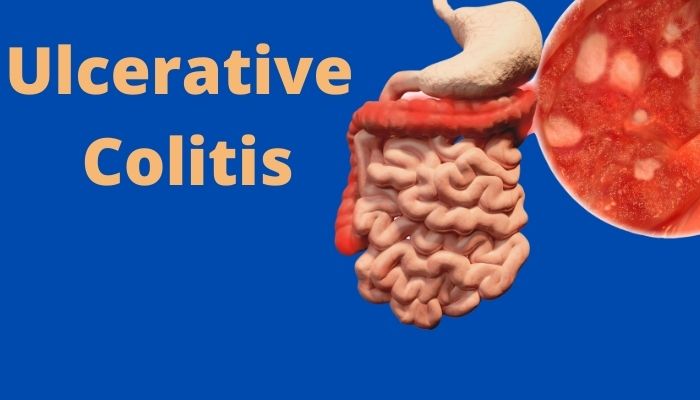Inflammation is the main reason for various health disorders that we undergo during our lifetime. One such health disorder is Ulcerative Colitis. Ulcerative Colitis, also known as UC, is an inflammatory disease of the bowel that affects your large intestine or colon. Those who suffer from UC, experience a lot of irritation due to ulcers, inflammation, and difficult bowel movements. Unlike other health disorders, this one is caused due to an overactive immune system that inflames the rectum, colon, or large intestine.

Let us dig deeper and help you to understand all about ulcerative colitis symptoms, causes, and treatments.
Types of Ulcerative Colitis
UC or Ulcerative Colitis is of three main types:1. Ulcerative Proctitis
In this type of UC disorder, only the rectum gets inflamed. It is, therefore, regarded as a mild type of UC.2. Extensive Colitis
Also referred to as Pancolitis, this type of UC inflames the whole of your colon. It is definitely considered the most severe form of UC.3. Left-sided Colitis
As the name suggests, in this type of UC, a specific area between the last section of the colon and splenic flexure gets inflamed. This form of UC is also referred to as Distal Ulcerative Colitis. Another form of left-sided colitis is Proctosigmoiditis.Ulcerative Colitis Symptoms
The symptoms of ulcerative colitis may vary from person to person. Moreover, the symptoms may vary from time to time. Some of the common symptoms associated with ulcerative colitis are:- Malnutrition
- Weight Loss
- Diarrhea
- Blood in Stool
- Fever
- Abdominal Discomfort or Pain
- Abdominal Sounds
- Pain in the Rectum
- Eye Inflammation
- Mouth Sores
- Nausea
- Joint Pain
- Joint Swelling
- Skin Problems
Ulcerative Colitis Causes
The main cause of ulcerative colitis is believed to be an overactive immune system. Yes, this might sound strange, because many diseases and health disorders take place due to a weak immune system, but in the case of UC, it takes place due to an overactive immune system. Some other main ulcerative colitis causes are:- Family History or Genes: If one of your parents had suffered from UC ever, chances are high that it will be passed on to you in genes.
- Environmental Factors: Besides, environmental factors like antigens, viruses, and bacteria present in the environment may also lead to health disorders like ulcerative colitis.
- Immune Disorders: Third cause of ulcerative colitis is an immune disorder of any type. If you are already suffering from any type of immune disorder, you may suffer from UC too.
Ulcerative Colitis Diagnosis
Ulcerative colitis may be diagnosed through some specific tests. Some of the tests prescribed by doctors to diagnose UC disease are:- Blood Tests: The most commonly referred test to diagnose ulcerative colitis is a blood test. Through blood tests, your doctor may check on the high levels of C-reactive protein, and other signs of inflammation.
- CT Scan: Other than blood tests, your doctor may prescribe you a CT scan for the pelvis and abdomen to detect symptoms of UC.
- Stool Test: Besides, you may also be prescribed a stool test to check for some stains of blood, parasites, bacteria, and other inflammatory signs.
- Biopsy: Biopsy, as we all know is about getting a tissue sample to check for disease. Here for UC, a surgeon may take a colon tissue sample for testing.
- Colonoscopy: Likewise, in severe cases, a doctor may suggest colonoscopy, where a lighted scope, also known as a colonoscope is inserted into the rectum to check the interior of your colon.
- Endoscopy: This type of testing is done to examine the esophagus, stomach, and small intestine using a flexible tube.
- Flexible Sigmoidoscopy: This is also a type of endoscopy, where a flexible tube is inserted into the rectum to examine the sigmoid colon.


